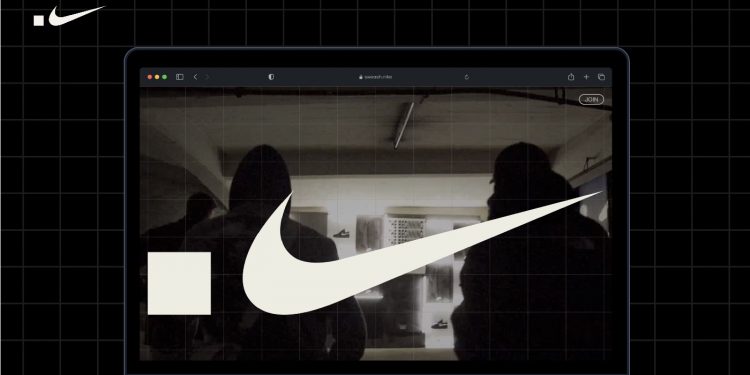Nike continues its push into the world of digital collectibles, revolutionizing the way fans interact with their favorite brand. By combining cutting-edge technology with community involvement, the company is forging new paths in fan engagement and marketing strategies. This article explores the famous brand’s foray into digital collectibles, its impact on the marketing landscape, and the evolving perception of non-fungible tokens (NFTs) among marketers.
Nike Embracing NFTs
Nike’s recent virtual sneaker drop on its web3 marketplace, .Swoosh, has sparked intrigue among marketers and fans alike. These digitized Air Force Ones are not simply NFTs; instead, Nike refers to them as “virtual creations” according to a report.
The emphasis lies on the experience for the average consumer, rather than the underlying technology. By prioritizing collective ownership and community involvement, Nike aims to connect a group of people through content, creating a unique brand-building play.
Empowering the Community
Nike’s collaboration with .Swoosh members in selecting four virtual shoe designs demonstrates its commitment to community involvement. Through co-creation with customers and the brand, these designs were integrated into the 100,000 available digital products on the marketplace.
Fans had the opportunity to purchase two types of digital sneaker boxes, each containing a 3D file that could potentially be exported to other platforms. This inclusivity, combined with a low price point, strengthens the bond between Nike and its dedicated fanbase.
Token-Gated Content and Exclusive Experiences
By embracing NFTs as part of their marketing and sales strategy, Nike has unlocked a new relationship model with its customers. The .Swoosh site offers self-identified fans the chance to engage with token-gated content and exclusive experiences.
Through this platform, fans can create, collect, trade, and showcase their digital wares, fostering a sense of belonging and personalized interaction. Nike’s approach transcends selling mere digital assets; it cultivates a vibrant community and builds enduring connections.
Influencing the Marketing Landscape
Nike’s innovative approach to digital collectibles is inspiring other marketers to reconsider the potential of NFTs. Major brands like Starbucks have launched tokenized loyalty programs, offering NFTs in a marketplace under a different name.
The perception of NFTs has shifted from being mere revenue drivers to meaningful tools for engaging with consumers. Marketers now recognize the power of NFTs in creating deeper connections and providing unique experiences for their target audience.
Embracing Change and Future Possibilities
While skepticism surrounding NFTs still exists, Nike’s trailblazing efforts indicate a changing mindset among marketers. The involvement of sports leagues in selling digital collectibles and artists utilizing these digital assets to sell their artwork highlights the expanding reach of this technology.
By embracing NFTs, Nike is not only selling digital sneakers but also laying the foundation for a dynamic community of fans who can interact with one another and the brand in exciting new ways. This progressive approach is reshaping the marketing landscape and pointing towards a future where NFTs play a significant role in consumer engagement.
Final Thoughts
Nike’s entry into the world of digital collectibles exemplifies a significant change in how renowned brands are currently driving fan involvement and executing marketing tactics. Through prioritizing experiential elements and fostering community, the sportswear maker has successfully redefined the notion of digital assets and is illustrating more use cases for them in the present setting.
The brand’s pioneering approach serves as inspiration for other marketers to explore the potential of NFTs in creating meaningful connections with their target audience. As the perception of NFTs evolves, the marketing landscape is set to witness further innovations that leverage the power of these groundbreaking technologies.










